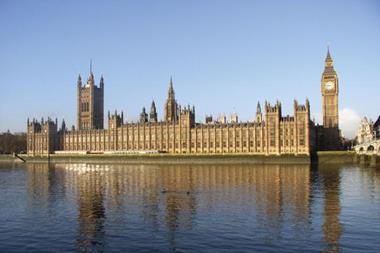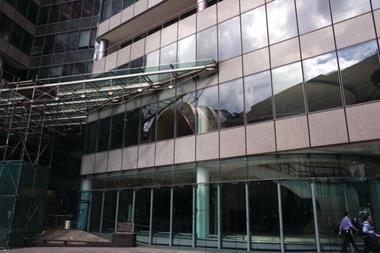Nathan Skinner reviews anti bribery and corruption measures – and discusses just how effective they are
Bribery and corruption are very short-sighted corporate strategies. Yet they are not uncommon in the world of international business. The Organisation for Economic Cooperation and Development (OECD), one of the world’s foremost anti-bribery groups, believes the moral responsibility is on the rich world, the ‘supply side’ or bribe payers, to stamp out corruption. Corruption in business transactions decreases competition, deters investment, and increases the cost of goods and services, says the OECD.
Despite the rather longwinded title of the ‘OECD Convention on Combating Bribery of Foreign Public Officials in International Business Transactions’, the publication is the cornerstone of the Paris-based organisation’s efforts to fight corruption. It is an important international agreement, which establishes the bribery of foreign public officials as a crime. Currently, 38 countries around the world have subscribed to the convention, which requires that they establish and implement a comprehensive set of legal and regulatory measures to prevent, detect, investigate and prosecute the bribery of foreign officials. It also mandates stiff fines and imprisonment for companies and individuals who commit bribery. Before the convention came into force, few countries had any offences that covered corruption.
However, the convention remains largely unenforced in many parts of the world. A big problem is that three major countries, India, China and Russia, are not parties to it. The OECD is concerned that the number of convictions for corruption remains very low. Mark Pieth, chair of the OECD Working Group on bribery, says he would like to see more prosecutions.
Poor performance
There are many reasons for the low level of conviction. Offences are difficult to detect, for bribery is, by its very nature, secretive. Uncovering them requires a free flow of information across national borders and improved cooperation between businesses, the financial sector, governments and the media. Complicated jurisdictional issues also slow the pace of enquiries. And prosecutors sometimes lack the resources and specialised training to investigate and prosecute bribery properly.
This means there is a great deal of room for improving enforcement. One necessary step is that companies themselves make use of the convention and bring it into their corporate cultures.
Another significant issue is that some jurisdictions are not taking their anti-corruption responsibilities seriously. The UK, along with Turkey, Ireland and Slovakia, are all on the OECD’s problem list. The OECD is deeply troubled by the UK’s discontinuance of the BAE Al Yamamah investigation and the lack of progress in rectifying deficiencies in legislation. The organisation also expressed serious concern over possible systemic problems in bringing cases to prosecution. In Ireland, the OECD says the Government has not made sufficient effort to raise awareness about the convention or improve its anti corruption laws, particularly on corporate liability. The OECD also condemned Turkey’s dismissal and slow treatment of foreign bribery cases and expressed concern about remarks made by the Slovak Minister of the Economy, which appeared to condone the bribery of foreign officials.
The UK has a bad reputation for not tackling corruption. The country achieves far fewer prosecutions for bribery than the US and Europe. Between 10 and 12 bribery cases are brought to court each year in Britain, according to Ministry of Justice figures. With its soft-touch approach to anti bribery laws, the UK is not doing much to shed its image as a push over jurisdiction. This is bad news for the its reputation as well as for companies based there.
In 2003, 2005, 2007 and 2008 the OECD publicly scorned the UK for failing to bring its laws into line with international standards. The group said it was ‘disappointed and seriously concerned’ about the UK’s continued failure to address deficiencies in its laws.
“Transparency and the rule of law will be the touchstones of this presidency
US President Barack Obama
As well as putting directors at risk of prosecution by foreign countries, the inadequacy of British rules is having other effects.
Uncertainty in the country’s legal framework may trigger increased due diligence over UK companies by their commercial partners. And in the absence of an effective domestic corporate liability regime there is no incentive for companies based in the UK to take issues of corruption and bribery seriously. A survey by Ernst & Young found that bribery and corruption still play a big role in the conduct of business in Britain. Thirteen percent of all UK respondents said that their organisation had experienced at least one incident of bribery or corruption in the last two years, compared to 6% in Germany and 6% in France.
This laissez faire attitude has become entrenched by years of government inaction. In 2006 the Serious Fraud Office (SFO), the UK’s fraud and corruption enforcement authority, abandoned a probe into the £43bn Al-Yamamah arms deal with Saudi Arabia. BAE, a defence contractor and one of Britain’s biggest companies, was accused of handing out kickbacks to secure a deal to supply fighter aircraft and services to the Saudi government. The investigation was abandoned after the then Prime Minister, Tony Blair, said it was a threat to national security.
A BAE report after the affair was over revealed that senior management failed to pay sufficient attention to ethical issues. This is a serious concern, because corporate ethics are not just about staying on the right side of the law; they also makes good business sense. In the global economy, corporate reputation has become an essential part of an enterprise’s value. ‘The effective management of ethical and reputational risks has become a critical element of corporate governance,’ said the BAE report.
Toughening up
But it is not all doom and gloom. There are promising moves towards improved enforcement worldwide, and some tough penalties are being handed out for non-compliance. With the prosecution of insurance broking group Aon at the beginning of this year for failing to prevent E5.5m ($7m) of suspicious payments to overseas firms, the UK could be seen as toughening up its stance.
The Financial Services Authority (FSA) fined Aon E6m (£5.25m) for failing to prevent bribery overseas. Margaret Cole, director of enforcement at the FSA, said: ‘This is the largest financial crime-related fine imposed by the FSA to date. It sends a clear message to the UK financial services industry that it is completely unacceptable for firms to conduct business overseas without having in place appropriate anti bribery and corruption systems and controls.’ Put in perspective the fine is a small one, but it is a step forward in the fight against corruption.
Another big step forward would be tougher laws. The UK is said to be preparing a draft bribery bill making it a criminal offence to offer or accept a bribe anywhere in the world. Under the proposals, the maximum penalty for such a crime would rise from seven to 10 years, with an unlimited fine. The bill is also reported to include a new corporate offence of negligence in preventing bribes. Transparency International, a global coalition against corruption, has urged the Government to pass the bill before the next election.
Despite its high profile as a lax jurisdiction, the UK ranks fifth in Transparency International’s 2008 Bribe Payers Index of the countries least likely to have companies that engage in bribery overseas. Belgium and Canada topped the table with the cleanest record. Amongst the 26 countries listed, France, Australia, the US, Spain, and Italy were all more likely than Britain to have companies engage in bribery overseas.
“For much of its operations across the globe, bribery was nothing less than standard operating procedure for Siemens
US assistant attorney general Matthew Friedrich
Another promising move is that the OECD is pushing to grow its influence in Asia and Africa. The OECD is in discussion with China over its transnational anti bribery efforts. The organisation has also signed a partnership with the African Development Bank to help African countries fight bribery and corruption. And China, India and Indonesia are already members of the Asian Development Bank/OECD Anti-Corruption Initiative for Asia and the Pacific, which brings together 28 Asian and Pacific economies that are committed to implement international anti corruption standards.
Transparency International also welcomed President Barack Obama’s tough stance on anti corruption enforcement, which was taken on his first day in office. The coalition lauded Obama’s declaration that ‘transparency and the rule of law will be the touchstones of this presidency’.
‘The United States was a trailblazer in 1977 when it passed the Foreign Corrupt Practices Act (FCPA), barring US based firms from bribing public officials abroad. Its enforcement track record is a model for all major exporting countries that has yet to be replicated,’ said Transparency International in a recent statement.
Siemens case
The Siemens bribery case, which revealed widespread corruption in one of the biggest corporations in the world, demonstrates the long arm of US anti corruption laws and the effectiveness of the FCPA.
In December 2008, the German engineering giant and three of its subsidiaries pleaded guilty to violations of the FCPA and agreed to pay a record total of E1bn ($1.3bn) to American and European authorities. The firm was fined E395m ($520m) by the Munich Public Prosecutor’s Office. On the American side, Siemens also paid E340m ($450m) to the Justice Department and E265m ($350m) to the Securities and Exchange Commission. The combined US penalties made it the largest monetary sanction ever imposed in an FCPA case since the act was passed.
Beginning in the mid-1990s, Siemens engaged in systematic efforts to falsify its corporate records and knowingly failed to implement existing internal controls, according to the prosecutors. Siemens was accused of making bribes totalling around $1.3bn to government officials in Asia, Africa, Europe, the Middle East and the Americas. The bribes included kickbacks to the Iraqi government, and illegal payments to Argentine, Venezuelan and Bangladeshi officials to secure favourable treatment on national infrastructure projects. ‘For much of its operations across the globe, bribery was nothing less than standard operating procedure for Siemens,’ said US assistant attorney general Matthew Friedrich.
The incident, which has done untold damage to Siemens’ corporate reputation, is also indicative of a trend whereby foreign jurisdictions are increasingly cooperating on big cross-border investigations. This was laid out as one of the goals of the Group of 20 when they met in London in April this year.
A large part of the fight against corruption depends on political willingness to use the tools already in place. For the sake of freedom, fairness and prosperity let us hope they are used effectively.



















No comments yet